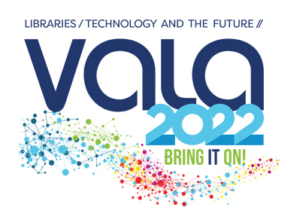Study Smart: Information research & literacy skills. Online & open to all.
VALA2022 E-Poster
Gabrielle Hayes
- Liaison Librarian
- Queensland University of Technology
Megan Brodribb
- Senior Library Adviser
- Queensland University of Technology
Please tag your comments, tweets, and blog posts about this session: #vala2022
Abstract
Study Smart is a Creative Commons licensed, open educational resource (OER) focused on teaching foundational information research and literacy skills reflecting those required in in Higher Education. Developed in line with Queensland University of Technology’s (QUT) digital learning framework (2020) and the ACRL Framework for Information Literacy in Higher Education (2015), Study Smart is an online self-paced, modularised resource that can be integrated into Curriculum, set as co-curricular learning, or used by students or members of the public who have self-identified as needing skilling up in this area. Each of the four modules provide structured, scaffolded, learning with an emphasis on videos, interactive activities, graphics, and opportunities to test students learning and understanding throughout.
QUT Library has a long history of creating open learning resources with Pilot: Your information navigator – its first iteration of online web-based Information Literacy (IL) skills teaching– being launched in 1999. PILOT was Creative Commons licensed and reused and adapted by Universities within Australia and internationally. The 2020 redevelopment of Study Smart continues this explicit aim of being open, shareable and reusable, retaining its open web presence and unless otherwise noted, operates under Creative Commons licensing in line with QUT Library’s history of supporting open scholarship and publishing.
QUT Library’s Study Smart was designed in-line with QUT’s institutional vision and support for Open Education Resources: “QUT is committed to the creation and dissemination of knowledge for the benefit of society. This includes supporting the use and sharing of Open Educational Resources (OERs) to widen access to education, and to improve both the cost-efficiency and quality of teaching and learning outcomes” (QUT, 2021).
Study Smart modules were designed with an emphasis on interactivity, multimedia, and explicit learning objects to enhance and augment learning. The overall learning design has the Study Smart website licensed under CC-BY-NC-SA allowing shareability and reusability. In addition to this, individual learning objects were clearly licensed to allow recognition of Creative Commons and to remove any barriers to reuse. For example, the Study Smart videos are all licensed under Creative Commons allowing shareability and reusability. In addition to being found on the Study Smart website, all videos (and their transcripts) are hosted on the QUT Library YouTube channel allowing findability and accessibility. Content such as the skills templates (for skills such as article evaluation and notetaking) are another example highlighting Study Smart’s policy for sharing and reuse of content. These templates are all downloadable and able to be used offline with a view for adaption, sharing and reuse institutionally and beyond. Links to additional or supporting resources are open and freely accessible wherever possible, while any links to QUT-specific material is minimal and clearly signposted.
QUT Library’s Study Smart is a leading example of how institutional/organizational learning resources primarily created for internal audiences (students & staff) can easily incorporate OER principles to become valuable resources for a wider audience, contributing to the ideals of open access and equity in education and research.
Biography
Gabrielle Hayes and Megan Brodribb are Librarians with extensive experience in the Learning and Teaching of Information literacy skills in Higher Education. They led the redevelopment of Study Smart 2020 and continue to manage and oversee its roll-out across QUT.
![]()
This work is licensed under a Creative Commons Attribution-NonCommercial-NoDerivs 3.0 Unported License



